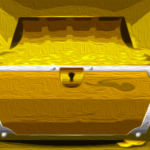
Introduction
The securities regulator and the central banking institution of Hong Kong have recently revised the region's crypto policy in response to industry inquiries. The authorities have implemented additional measures to safeguard retail investors and limit their access to what they classify as "complex products."
Background
Initially, Hong Kong's approach to regulating crypto assets focused on restricting various market activities to professional investors. However, with the significant expansion of investment products offering exposure to virtual assets, regulators have allowed crypto trading platforms to serve retail investors.
In light of market developments and the growing interest from industry players to expand retail access to virtual asset (VA) products and services, the Securities and Futures Commission (SFC) and the Hong Kong Monetary Authority (HKMA) have jointly released a circular updating their policy.
Risks and Regulatory Landscape
The authorities emphasized that the risks identified in 2018 still persist due to the uneven global regulatory landscape. They highlighted that crypto platforms, which may be unregulated or partially regulated, are subject to different standards than traditional financial service providers, posing additional risks.
Considering these risks, the regulatory institutions stated that VA-related products are likely to be considered complex products, as retail investors may not fully understand the associated risks. Therefore, intermediaries distributing such crypto products must comply with the SFC's requirements for selling complex products.
Investor Protection Measures
The SFC and the HKMA believe that additional measures are necessary to protect investors. One such measure is allowing the offering of VA-related products, considered complex, exclusively to professional investors.
Intermediaries are also required to assess the knowledge of retail investors before processing crypto transactions on their behalf. If the client lacks sufficient knowledge, the intermediary must provide adequate training on the nature and risks of virtual assets. Additionally, intermediaries must ensure that their clients have the financial capacity to assume the risks and potential losses of trading VA-related products.
Hong Kong's Crypto Ambitions
Hong Kong aims to establish itself as a hub for crypto assets and businesses, especially in the aftermath of the Covid-19 pandemic. These revised rules for the industry come in the wake of the crackdown on JPEX, a crypto exchange. The fraud investigation led to the suspension of certain activities and increased regulatory scrutiny across the sector. In October, the SFC and the Hong Kong police formed a special unit to monitor cryptocurrency exchanges.
It remains to be seen whether Hong Kong regulators will further tighten crypto rules in the future. Share your thoughts in the comments section below.
Frequently Asked Questions
What are the fees for an IRA that holds gold?
An individual retirement account's average annual fee (IRA) costs $1,000. There are many types to choose from, such as Roth, SEP, SIMPLE, traditional and Roth IRAs. Each type has its own set of rules and requirements. You may be required to pay taxes on earnings earned from investments that aren't tax-deferred. Consider how long you will keep the money. If you plan to keep your money longer, you can save more money by opening a Traditional IRA instead of a Roth IRA.
A traditional IRA allows for contributions up to $5500 ($6,500 if older than 50). A Roth IRA lets you contribute unlimited amounts each year. The difference between them is simple: With a traditional IRA, you can withdraw the money after you retire without paying taxes. You'll owe tax on any Roth IRA withdrawals.
How do I choose the right IRA for me?
Understanding your account type is the first step in finding the right IRA for you. This is whether you want a Roth IRA, a traditional IRA, or both. Also, you should know how much money is available for investment.
Next, you need to determine which provider is best suited for your needs. While some providers offer both accounts, others specialize in only one.
Consider the fees that come with each option. There are many fees that vary between providers. They may include annual maintenance fees or other charges. For example, some providers charge a monthly fee based on the number of shares you own. Others only charge once per quarter.
Can you hold precious metals in an IRA?
This question is dependent on whether an IRA owner wishes to diversify into gold or silver, or keep them safe.
Two options are available for him if diversification is something he desires. He could buy physical bars of gold and/or silver from a dealer or sell these items back to the dealer at the end of the year. Imagine he doesn't desire to sell off his precious metals investments. He could keep the precious metals as long as he wants to.
What precious metals can be allowed in an IRA?
The most commonly used precious metal in IRA accounts is, of course, gold. You can also invest in gold bullion bars and coins.
Precious Metals are safe investments since they don’t lose value over the long-term. Precious metals are also great for diversifying an investment portfolio.
Precious Metals include palladium, silver, and platinum. These three metals are similar in their properties. Each has its own purpose.
In jewelry making, for instance, platinum is used. The catalysts are made from palladium. For producing coins, silver is used.
You should consider the amount you will spend on your gold before you decide which precious metal. A lower-cost ounce of gold might be a better option.
Also, think about whether or not you wish to keep your investment secret. If you are unsure, palladium is the right choice.
Palladium is more valuable than gold. It is also more rare. So you'll likely have to pay more for it.
Storage fees are another important consideration when choosing between silver and gold. The weight of gold is what you store. So you'll pay a higher fee for storing larger amounts of gold.
Silver is best stored in volumes. You'll pay less if you store smaller quantities of silver.
All IRS rules concerning gold and silver should be followed if your precious metals are stored in an IRA. This includes keeping track of transactions and reporting them to the IRS.
Statistics
- If you accidentally make an improper transaction, the IRS will disallow it and count it as a withdrawal so that you would owe income tax on the item's value and, if you are younger than 59 ½, an additional 10% early withdrawal penalty. (forbes.com)
- Silver must be 99.9% pure • (forbes.com)
- To qualify as IRA allowable precious metals and be accepted by STRATA, the following minimum fineness requirements must be met: Gold must be 99.5% pure, silver must be 99.9% pure, and platinum and palladium must both be 99.95% pure. (stratatrust.com)
- The IRS also allows American Eagle coins, even though they do not meet gold's 99.5% purity standard. (forbes.com)
External Links
en.wikipedia.org
wsj.com
takemetothesite.com
regalassets.com
How To
How to Buy Gold To Your Gold IRA
Precious metal is a term used to describe gold, silver, platinum, palladium, rhodium, iridium, osmium, ruthenium, rhenium, and others. It's any element naturally occurring with atomic numbers 79 to 110 (excluding helium), that is valued for its rarity or beauty. Precious metals include gold and silver. Precious metals can be used to make money, jewelry, industrial products, and art objects.
Due to supply and demand, the price of gold fluctuates every day. In the past decade, there has been a huge demand for precious metals as investors seek safe havens from unstable economies. Prices have risen significantly due to this increased demand. However, the increasing cost of production has made some people concerned about investing in precious metals.
Gold is a solid investment as it is both rare and long-lasting. Like many investments, gold doesn't lose value. Additionally, you can sell and buy gold without any taxes. There are two methods to invest gold. You can buy bars and gold coins, or invest into gold futures contracts.
The physical gold bars and coins provide immediate liquidity. They're easy to trade and store. They do not offer any protection against inflation. For protection against rising prices, gold bullion is a good option. Bullion is physical, or pure gold. Some billions come in one-ounce pieces, while others come in larger sizes like kilo bars. Bullion is typically stored in vaults to protect it from theft and fire.
Consider buying gold futures if you would rather own shares than actual gold. Futures allow you to speculate as to how the gold price will change. You can expose yourself to the price of gold by buying gold futures without having to own the physical commodity.
For instance, if I wanted speculation on whether gold prices would go up or lower, I could buy a contract for gold. When the contract expires, my position will either be “long” or “short.” A long contract is one in which I believe that the price of gold will rise. I'm willing now to pay someone else money, but I promise I'll get more money at the end. A shorter contract would mean that I believe the gold price will fall. I'm willing now to accept the money in exchange for the promise of making less later.
When the contract expires, I'll receive the amount of gold specified in the contract plus interest. By doing this, I can get exposure to the market price for gold without actually owning it.
Because they are extremely difficult to counterfeit, precious metals make great investments. While paper currency can be easily counterfeited simply by printing new notes, precious metals cannot. Because of this, precious metals have traditionally held their value well over time.
—————————————————————————————————————————————————————————————-
Based on [POSTTITLE]
by [POSTAUTHOR]














